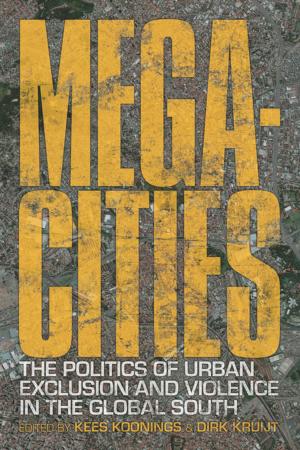Crisis and Class War in Egypt
Social Reproduction, Factional Realignments and the Global Political Economy
Nonfiction, Social & Cultural Studies, Political Science, International, Foreign Legal Systems, History| Author: | Sean F. McMahon | ISBN: | 9781783605057 |
| Publisher: | Zed Books | Publication: | October 15, 2016 |
| Imprint: | Zed Books | Language: | English |
| Author: | Sean F. McMahon |
| ISBN: | 9781783605057 |
| Publisher: | Zed Books |
| Publication: | October 15, 2016 |
| Imprint: | Zed Books |
| Language: | English |
In 2011, capital’s crisis erupted in Egyptian society. This eruption, and subsequent politics, have been misrepresented as revolutionary, as the working class was – and is increasingly so – devalued and disempowered.
In Crisis and Class War in Egypt, Sean F. McMahon critically analyses Egypt's recent political history. He argues that the so-called 'revolution' was the appearance of capital's destruction of the value of the Egyptian working class and an existential crisis for capital. In response, productive capital in the form of the military used, disposed of and replaced its junior partners in governing; first the predatory capital of the Mubarak state with the commodity capital of the Muslim Brotherhood, and then commodity capital with the finance capital of the Gulf Cooperation Council. These reconfigurations have been expressed in all manner of reactionary governmental arrangements including constitutions, legislation and currency reform.
Extending today's analysis into the near future, McMahon sees the war of Egyptian society intensifying, and increasingly violent lives for Egyptian workers.
In 2011, capital’s crisis erupted in Egyptian society. This eruption, and subsequent politics, have been misrepresented as revolutionary, as the working class was – and is increasingly so – devalued and disempowered.
In Crisis and Class War in Egypt, Sean F. McMahon critically analyses Egypt's recent political history. He argues that the so-called 'revolution' was the appearance of capital's destruction of the value of the Egyptian working class and an existential crisis for capital. In response, productive capital in the form of the military used, disposed of and replaced its junior partners in governing; first the predatory capital of the Mubarak state with the commodity capital of the Muslim Brotherhood, and then commodity capital with the finance capital of the Gulf Cooperation Council. These reconfigurations have been expressed in all manner of reactionary governmental arrangements including constitutions, legislation and currency reform.
Extending today's analysis into the near future, McMahon sees the war of Egyptian society intensifying, and increasingly violent lives for Egyptian workers.















